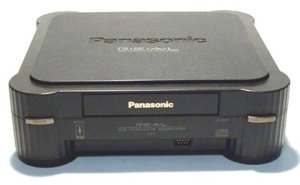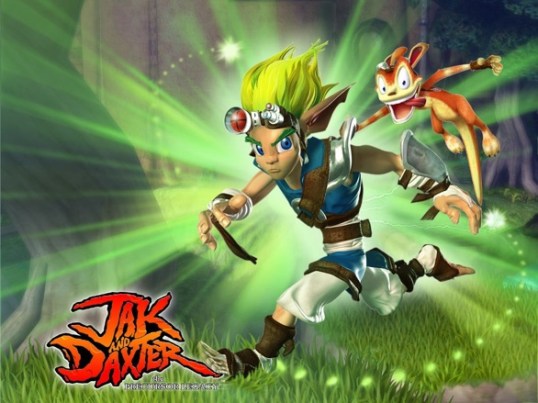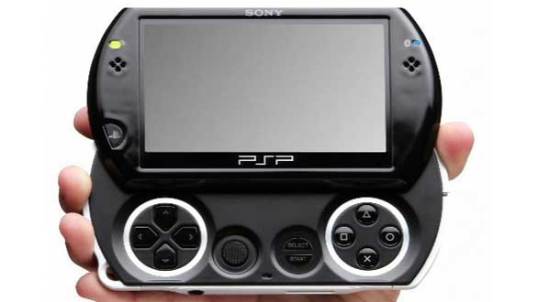Read part one here: The Playstation and Me: Evan Wells, Part 1
In this section of my talk with Evan Wells, he speaks ill of a long-dead console, Sony’s PSP conundrum and the way that technology inspired Naughty Dog’s successful Jak & Daxter franchise.
Do you remember the first time you saw the Playstation? Or did you hear about it before you saw it? What was the buzz about it like from your memory?
 Yeah. We were at Crystal because Mark Cerny was the big figure in the game industry, he was working at Crystal at the time, and had great ins with Japanese game development. So we actually had the very first Playstation dev kit at Crystal at the time. We ported our 3DO game Total Eclipse to the Playstation. It was the very first approved Playstation title for Sony by a third-party developer. Overall, it was amazing to see the leap forward that Sony had been able to make in 3D technology and CD-ROM based tech media from the 3DO. The 3DO console came out at like $700 when it launched and I think it was even less capable of 3D than the effects chip in the Super Nintendo was. I mean, it was really barely able to run a game at 15 frames per second. So, to see the Playstation come out and just be that far ahead of the competition, was like, wow, this is really going to change gaming.
Yeah. We were at Crystal because Mark Cerny was the big figure in the game industry, he was working at Crystal at the time, and had great ins with Japanese game development. So we actually had the very first Playstation dev kit at Crystal at the time. We ported our 3DO game Total Eclipse to the Playstation. It was the very first approved Playstation title for Sony by a third-party developer. Overall, it was amazing to see the leap forward that Sony had been able to make in 3D technology and CD-ROM based tech media from the 3DO. The 3DO console came out at like $700 when it launched and I think it was even less capable of 3D than the effects chip in the Super Nintendo was. I mean, it was really barely able to run a game at 15 frames per second. So, to see the Playstation come out and just be that far ahead of the competition, was like, wow, this is really going to change gaming.
What were the launch titles that made you think, hey, this thing might have the legs, or that really impressed you with it?
Wow. The launch titles. There were some really cool ones. I am probably going to really age myself by being able to remember these.
We are probably in the same ballpark.
[laughs] OK. Warhawk was just phenomenal. That was an amazing experience. Jumping Flash was a real breakthrough for me, because I’m sort of a platform game enthusiast, and to see what a first-person 3D platform game would be like was huge. I just played the heck out of that game. Those were probably the highlights. Well, Ridge Racer was everybody’s favorite. But those were what really struck me as amazing.
So, let’s fast forward a little bit to Jak & Daxter is where Naughty really made their name on the PS2. Where did that series come from? I mean, you’ve mentioned your love of platforming, but it’s kind of a blend of a lot of different genres. So where did the inspiration come from, and how did your relationship with Sony kind of progress in building the game?
Don’t forget, we developed the Crash Bandicoot series on Playstation 1.
Right. I totally skipped over that. I apologize.
No. That’s just fine. It’s not a Sony property anymore. We don’t get to talk about it much. So we developed Crash Bandicoot.
I’m going to jump in for just a quick second, if only to say that Ted [Price] mentioned yesterday that you always felt that your two companies are kind of symbiotically linked, going back and forth. And he name-checked your Crash work and the Jak & Daxter work as stuff that pushed those guys forward.
Yeah. And vice versa. I don’t know if he told you the story. But our companies were located next door to each other on the Universal Studios back-lot back in 1995-96, somewhere in there. And, yeah, we were literally sharing the same printer. It was just great to be able to hang out with those guys and just, again, be inspired by how they were pushing technology and gameplay forward. Yeah, with their Spyro and Ratchet games, definitely there was a little bit of friendly competition between the two of us to push our efforts, because we were kind of playing in the same sandbox in that genre.
I think we were able to push each other to achieve more. Crash sort of established that we wanted to do very platform-y, character driven games. And when we saw the Playstation 2 hardware, it sort of pushed us to try something, moving a little bit away from the big-headed furry mascot character. It was slightly more human but still fantastic, though.
Jak was an elf. He still had certainly exaggerated features. He’s humanoid and animated like a human would. Had a voice and could talk. We were sort of pushing ourselves to start to tell deeper stories and grander adventures. So it was really the technology and being able to really increase the fidelity of the image we were able to create, that drove us to create Jak & Daxter.
It’s funny, you mentioned that some of the qualities that people would cite now for Uncharted, in terms of the voice acting and the animation, things that are kind of cinematic in nature. It seems that even going back to the launch of the PS1, you were looking forward to those possibilities. Is that something that you felt like Sony was better at delivering by virtue of maybe their entertainment company mega-corporation background?
Yeah, I do. And I think that probably has a lot to do with it. But I think Sony in general is a company, and particularly Sony Computer Entertainment, is just amazingly supportive of creative endeavors, and they, I think as a publisher, take risks in areas that I just don’t think you see elsewhere. They really support the artist. It’s just a great company to be partnered with. Just because you see a lot of other people being more risk-averse, and they’re treating game development like product development, and not lot like an entertainment industry. So it’s a very different vibe that I think Sony has that allows them to create these amazing entertainment experiences.
Do you think that kind of risk averse-attitude is more on the publishers’ side, the platform-holders’ side? Can you give a specific example of another company that you feel like was maybe a little bit less daring?
Well, I’m not going to sling mud. But, just look at–as we are jumping forward to the Playstation 3 era–I don’t think you could find another publisher out there whether they’re a first-party platform holder or a third party publisher that would have a portfolio as diverse as games like Heavy Rain, and Flower, along with big blockbusters like Uncharted and God of War.NI mean, these kinds of games just would never get green-lighted in other studios.
So what do you feel like are other challenges that Sony’s going to have to deal with in growing Playstation out? Hell, Kaz Hirai has said it–as well as other people further down the food chain–that PSP is not where they want it to be. It seems like a platform that has, I don’t know, like the clock might be winding down there. They’re also going to have to win people over with Move and with 3D gaming. How would you want them as somebody who partners with them to address those challenges?
Those are some important areas in Sony’s business. I think another area you didn’t mention is just the online space and the Playstation Network. They’re seeing great adoption because it’s a free experience, there’s a greater tie-in ratio to Playstation owners and people actively spending on the Playstation network than Microsoft and Xbox Live, obviously due to the cost structure they have. But I think just increasing the Playstation Network as a platform and providing even better services, I think is an important area for Sony to go in.
As far as the Move goes, I think we’re sort of on the cusp here of finding out how it does in the marketplace, but as far as like a game developer, and getting to play with it as a piece of hardware, it’s really cool. To be perfectly honest, when Nintendo announced their strategy to release the Wii, whenever that was, four years ago, I was skeptical. I was looking at that going, “Oh my gosh. This is a flop.”
As soon as I got my hands on it and I started playing the games that they were creating, it really impressed me as far as motion-controlled experiences. I was a convert instantly. I was like, “Wow, this is really cool and different!” I don’t think it will ever supplant DualShock-style experiences. Right now, Move is a way to create new experiences in addition to the traditional style of video games that are experienced with DualShock controllers. I don’t think that motion control is going to totally replace the control stick and button input.
How do you think that Sony can help advance their motion-gaming initiative?
I think what Sony’s got to do is continue to work with developers who are really embracing the idea of motion gaming , and just create some really compelling and innovative experiences from the ground up to take advantage of the hardware, because it’s an amazing piece of hardware.
And speaking of hardware, you guys were one of the few companies who created a game from scratch from the ground up for the PSP, and Daxter was a great game, but it feels like the platform is in trouble. What’s your ideal vision for a Sony Playstation hand-held device?
Well, it’s a tricky situation to analyze because as far as the hardware’s concerned, it’s done really, really well. I will probably throw out the wrong number but it’s like 40 or 50 million worldwide. The hardware itself was done phenomenally well. I don’t think it’s fair to say that as far as the hardware, it’s not true. I think the software has struggled. And there is a lot of theories behind that. A lot of them point towards piracy and just how easy it is to download games for it. But I think it’s a really cool piece of hardware and great for watching movies on it. It was my son’s sort of dinnertime babysitter when we’d go to restaurants for awhile.
But I think they’ve got to really lock down the hardware with tighter security. The Playstation 3 was a good example of how long it’s gone without being hacked, although I guess, now maybe is not a great time to talk about that. Up until now, that would have been a real solid statement.
It’s funny because I see lots of people anecdotally–not within the business or journalism side–who’ve all hacked their PSPs. There’s people on the subway playing NES games on it. And on one hand, it would put Sony in a tricky situation to embrace that aspect of the hardware, but on the other hand, you wonder how long you can keep sustaining an install base that buys the machine to use it in unintended ways. Do you know what I’m saying?
Yeah. Absolutely. I hate to deny homebrewers and the people that really want to get in there and do their stuff.
Yeah. Because clearly they’re passionate about it.
Yeah. It’s not that different than the way I got into games. If you’re a tinkerer, that’s the mentality that breeds the best game developers. People who really just like to get in under the hood and see how things work. The best way to learn something is to do it. So it’s tough to crack down on people who are doing it for a more legitimate purpose. But I just think the vast majority of people are doing it to pirate software.




